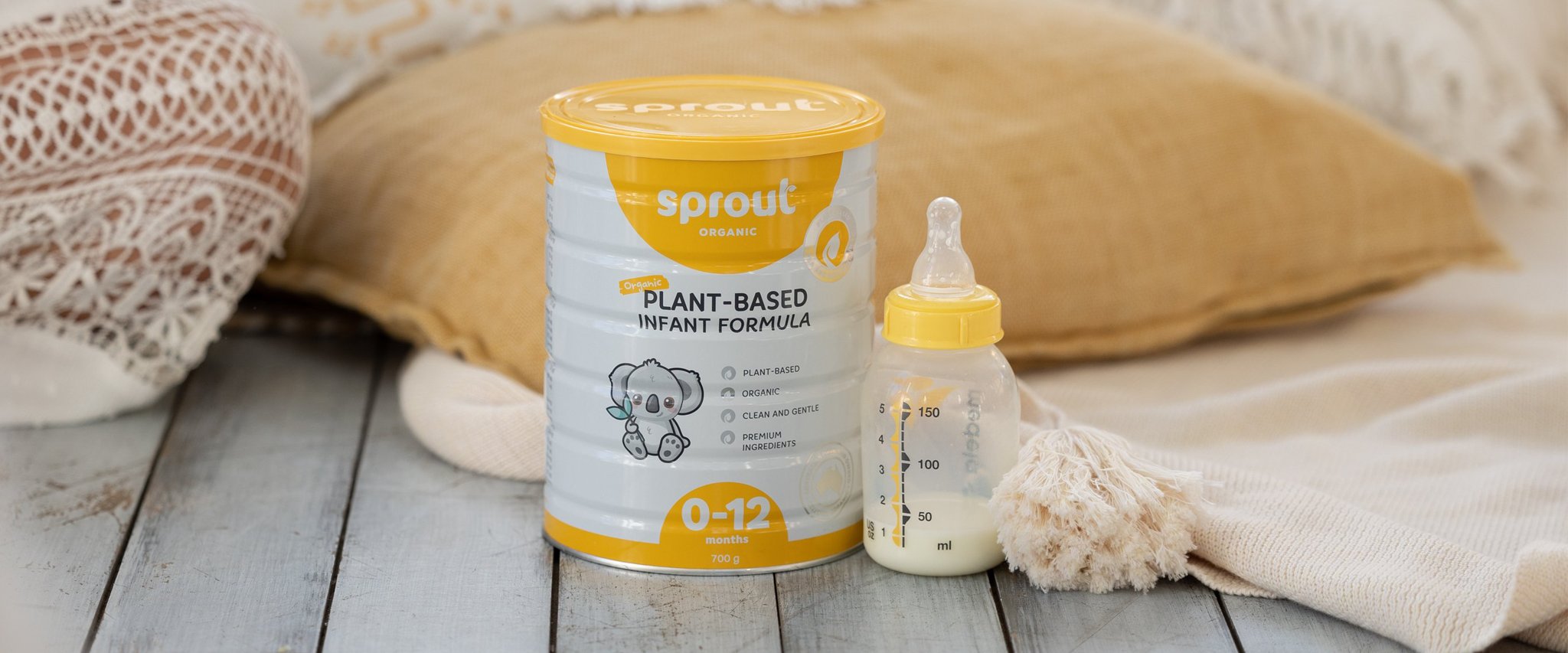Plant-Based Nutrition for Toddlers (Ages 1-3)
Welcome to part 3 of our 5-part series on plant-based feeding across childhood with dietitian Monica Rundle. Whether you're fully plant-based or adding more plant foods, this guide will help you nourish your growing toddler during this exciting stage.
The 1–3-year period brings new adventures as your little one transitions to toddlerhood. For plant-based families, this means adapting meals while ensuring key nutrients are met. In this blog, we're covering:
- Essential macronutrients and micronutrients for plant-based toddlers
- Crucial supplements to support their growth
- Practical tips for managing picky eating and responsive feeding
-
A simple meal plan to inspire your toddler’s menu
Remember: Every toddler is unique, and this information complements (never replaces) personalised advice from your healthcare team.

Toddler Growth & Development
What's Normal?
- Growth rate naturally slows after the first year BUT…. nutrition is still crucial!
- Appetite changes are completely normal! Be patient and flexible
- Food intake may vary day to day
- Focus on weekly nutrition, not daily perfection
- Trust your little one's hunger cues
- Focus on whole grains, fruits, veggies, nuts, seeds, and fortified soy
Macronutrients: Energy & Growth
Macronutrients are the building blocks! Ensure a balance of carbs, fats, and protein for your active toddler.
- Carbohydrates: 45-65% of daily energy. Focus on fibre-rich sources like quinoa, oats and sweet potato
- Fats: 30-40% of energy. Essential for brain development. Omega-3 (DHA) is crucial! Focus on healthy sources like, chia seeds, walnuts, flaxseed oil, avocado and olive oil
- Protein: 15-20% of energy (~14g/day). Found in legumes, tofu, and nut butters. If you’re offering a source at each meal, you’re little one will easily meet their needs!
Macronutrients: Vital for Health
Don't forget these micronutrients! They support everything from bone health to brain development.
- Iron: 9mg/day. Include rich sources like legumes, tofu, quinoa at each meal. Pair with Vitamin C (think strawberries, citrus, kiwi and capsicum) for better absorption
- Calcium: 500mg/day. It’s essential for optimal bone development! Fortified soy milk is a great source! Calcium set-tofu, tahini and leafy greens are also great!
- Iodine: 90mcg/day. Iodised salt (1/4 tsp per day) can help meet needs.

Milk Feeds for Toddlers
- Breastfeeding can continue as long as desired (2+ years)
- If previously formula-fed, transition to calcium fortified plant milk after 12 months
- Calcium-fortified, unsweetened full-fat soy milk is the most nutritionally similar to cow's milk
- Aim for 1.5-2 cups (375-500ml) daily - not more!
- Offer food before milk to prioritise solids
- Transition from bottles to open cups by around 18 months
Supplementation: The Essentials for Plant-Based Toddlers
- Vitamin B12: 5mcg daily (crucial for brain development)
- Vitamin D: 600 IU daily (for bone health)
- DHA/EPA (omega-3): 100mg DHA daily (brain development)
Remember: These aren't optional for plant-based toddlers!
Managing Picky Eating
Picky eating is a ‘normal’ phase of toddlerhood. It may take 10+ exposures before new foods are accepted.
Strategies that work:
- Offer variety without pressure
- Be a good role model – enjoy meals together
- Make mealtimes enjoyable
- Include one familiar food at each meal
- Limit milk between meals (this can fill little tummies!)

Responsive Feeding
Responsive feeding can help create a positive mealtime – especially when it comes to picky eating
- You decide: What foods to offer, when, and where
- Bub decides: How much to eat (if at all)
Benefits:
- Fewer mealtime battles
- Better relationship with food
- Preserved self-regulation
- Less picky eating long-term
- Trust your child's appetite!
The Plant-Based Toddler Daily Checklist
Include iron-rich food at EVERY meal and pair with vitamin C food for absorption.
✔️ 1.5-2 cups calcium-fortified soy milk
✔️ Healthy fats at each meal
✔️ 2 servings of omega-3 rich foods
✔️ Daily supplements (B12, Vitamin D, DHA)
✔️ Use iodised salt (¼ tsp daily)
✔️ Aim for 3 meals + 1-2 snacks
Plant-Based Toddler: One Simple Day
Breakfast: Oatmeal with berries, soy milk and nut butter
Mid-Morning: Apple slices with tahini
Lunch: Lentil soup & whole-grain toast
Afternoon: Smoothie (banana, soy milk, flaxseeds)
Dinner: Black bean burritos (with avocado & rice)

When to Seek Help
Most plant-based toddlers thrive, but regular check-ins with a paediatrician and dietitian are recommended to ensure your little one is getting all the nutrients they need for optimal growth and development!
- Falling off growth charts
- Signs of deficiency (pale skin, fatigue, frequent illness)
- Extreme picky eating affecting growth
- Persistent digestive issues
Want More Information?
The information shared is for informational purposes only and does not constitute medical advice. Always consult with a paediatrician or a dietitian for personalised advice.






Leave a comment